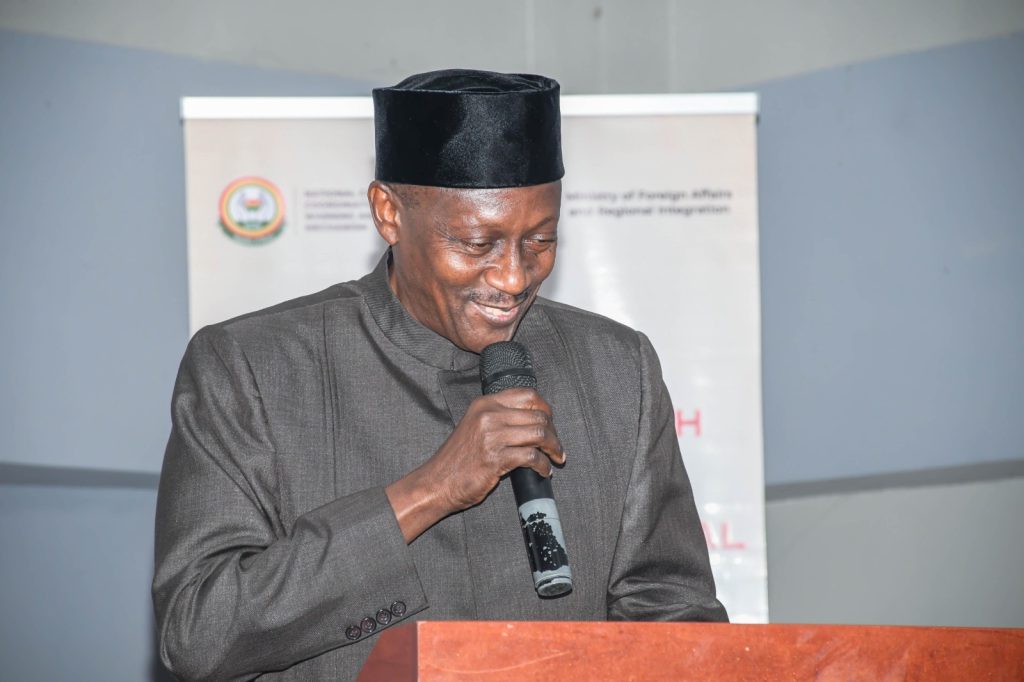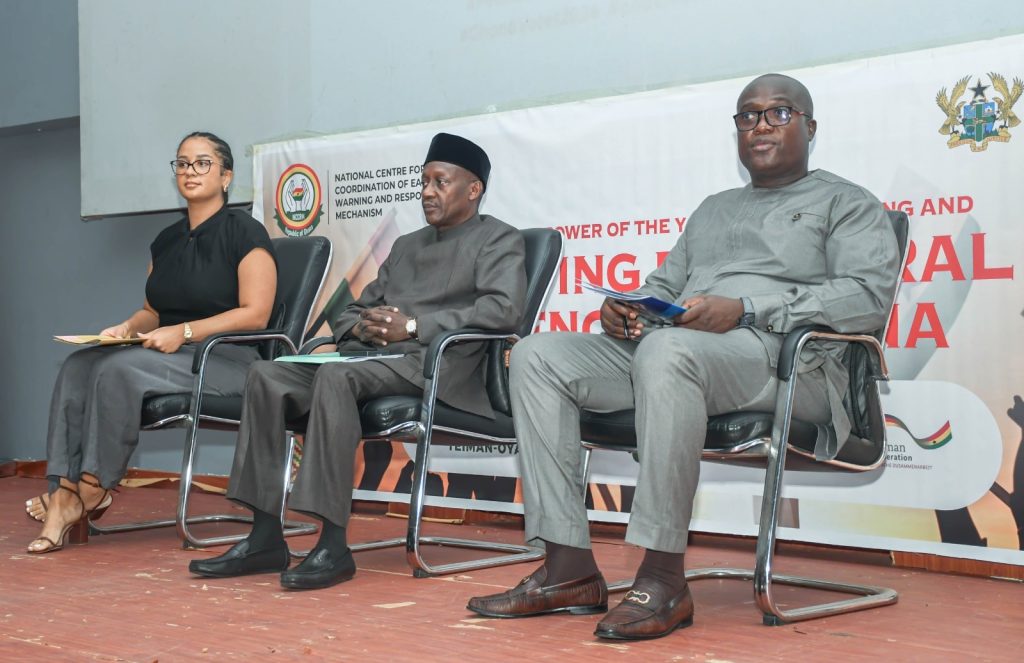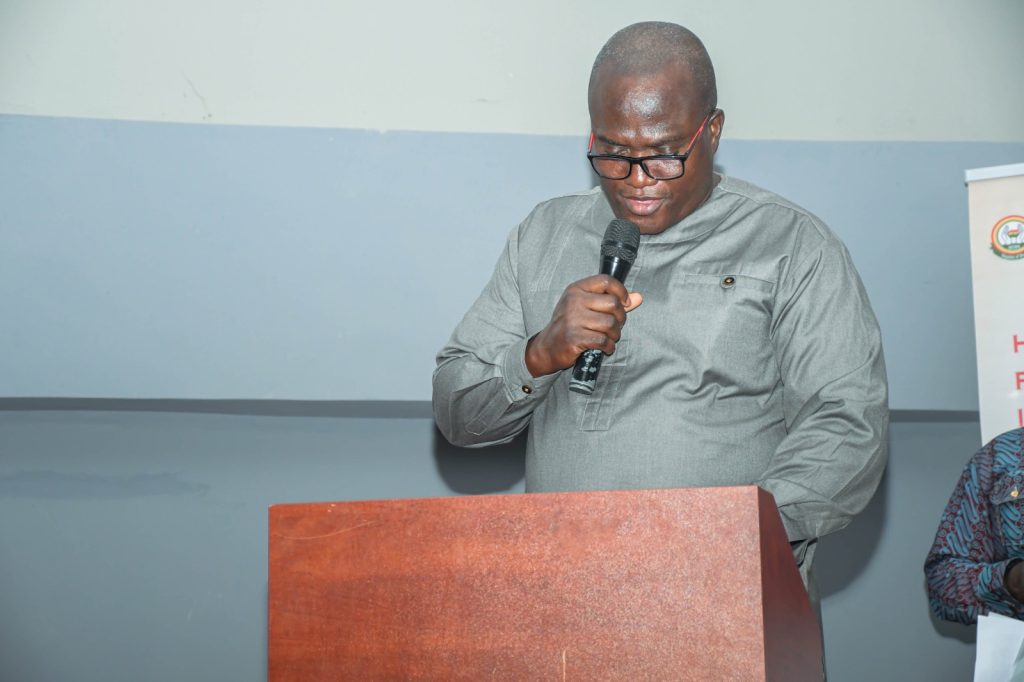GNA Feature by George-Ramsey Benamba
Accra, Nov 30, GNA- Every election year in Ghana witnesses more educational programmes, particularly against violence which has characterized both intra and inter political elections in the country since 1992.
Background
Although, not much has been recorded in terms of death and injuries, the few recorded could be a dent on the image of the country’s democratic dispensation.
A stitch in time, it is said saves nine, and it is in that accord that many meaningful organisations are carrying out various educational programmes against the canker.
NCCRM, who are they and what are they doing?
One of the government organisations that is spearheading and fighting negativities attached to national elections is the National Centre for the Coordination of Early Warning and Response Mechanism (NCCRM).
This they have done by organizing a two-day workshop on the theme: Harnessing the power of the youth in preventing and mitigating electoral violence in Ghana.
The NCCRM established by Act 1070 operates within 5 thematic areas namely Governance and Human Rights, Crime and Criminality, Social, Economic, Environment and Climate Change, Health and Pandemics, Security, Terrorism and Maritime Security.
Objectives of workshop
The objectives of the Workshop was to: Create awareness on risks and vulnerabilities with emphasis on how election violence affects the various human security domains, Enhance capacity of youth in preventing and mitigating election violence, present a platform for the youth to share their views as well as proffer solutions on the mitigation and prevention of election violence
The Centre since 2022 has noted pertinent human security threats arising from youth bulge, unemployment, illegal mining, youth resort to violence, access to and use of narcotic drugs and guns to perpetrate crimes that may affect livelihoods and lead to disability or death.
Since the inception of the Fourth Republic in 1992, Ghana has demonstrated exemplary commitment to democratic principles by conducting successive peaceful and transparent elections.
However, the Country has recorded various degrees of electoral violence mostly perpetrated by the youth resulting in destruction of property, disturbance of the public peace injuries and loss of lives among others.
Participants of the workshop
Participants were mostly drawn from the Greaterr Accra and Central regions of Ghana made up of Political party representatives, Transport Companies, the National Commission for Civic Education, Women Associations, Marrket Women Associations, Asafo groups and Masquerade groups from Winneba, Fish traders, ISD among others.
They were mostly drawn from Nima Mamobi, Ewutu Senya, Ashaiman,Awutu Municipality, Odododiodio, and others.
Partnership
The workshop was organised in partnership with the National Commission for Civic Education, (NCCE), West African Network for Peace Building Ghana (WANEP), National Peace Council (NPC), Ghana Police Service, Identified Youth Groups, Media
Director’s opening remarks
Colonel Emmanuel Sampson, Director of the Centre commended the Partners for their contributions and support towards the successful implementation of the workshop.
“I am pleased to welcome you to this all-important workshop, themed “Harnessing the Power of the Youth in Preventing and Mitigating Electoral Violence in Ghana.
“This gathering represents a collective effort and commitment to addressing the vulnerabilities of the country recognizing the potential of youth as pivotal agents of change in preventing electoral violence and promoting peaceful electoral processes during and after Ghana’s election 2024.
“I want to specially appreciate the Ministry of Foreign Affairs and Regional Integration, the European Union, the German Federal Ministry for Economic Cooperation and Development, for partnering with the National Centre for Coordination of Early Warning and Response Mechanism in occasioning this workshop.On behalf of the National Centre for Coordination of Early Warning and
Response Mechanism I would like to reiterate the Centre’s commitment to the Early Warning Framework and Response System in coordinating strategies to enhance human security for the Country and West Africa”.
He said Ghana’s peace and security architecture had built resilience over time and as such, had preserved its consolidated democracy.
However, he said there were threats that keep emerging and undermining this relative peace.
“The Centre since 2022 has noted pertinent human security threats arising from youth bulge, unemployment, illegal mining, youth resorting to violence, access to and use of narcotic drugs and guns to perpetrate crimes that may affect livelihoods and lead to disability or death1.

“Of particular concern is the increasing threat of violence accompanying intra and inter-political party electoral processes, a concern that has necessitated our gathering here today. The NCCRM identifies the need to engage the youth on the importance of preventing or mitigating election violence as it significantly.”
Colonel Sampson was confident that the workshop will raise important questions, find answers to same, and emerge out of this workshop better equipped to help in a free, fair and transparent elections.
“It is through your engagement and active participation that we can collectively address the challenges posed by electoral violence. As we move forward today, I encourage each of you to engage openly, share your insights, and harness your collective power.
“Together, we can build a safer future for Ghana, one where every citizen feels secure in exercising their democratic rights without fear of violence or intimidation. Let us embrace this opportunity to work hand-in-hand towards safeguarding our democracy and ensuring that our elections reflect the will of the people.
Serious issues of concern
Of particular concern is the increasing threat of violence accompanying intra and inter-party electoral processes.
Notably, these incidents occurred during District Assembly, Polling Station, Constituency Executive, Parliamentary as well as Presidential elections.

Some of the hotspots recorded include Greater Accra (James Town in the Odododiodio District, Weija in Ga South District, Nima/Mamobi in Ayawaso East District); Ashanti Region (Ahafo South, Asawase in the Kumasi Metropolitan District, Suame Pitinka in the Suame Municipal District); Western North Region (Aowin Municipal District); Bono Region (Sunyani); Bono East Region (Pru); Ahafo Region (Kukuom); Central Region (Kasoa in Ewutu Senya East Municipal District and Cape Coast North.
Others are Assin Praso in Assin North Municipal District); Northern Region (Tamale, Yendi, Bimbila and Sagnerigu), Upper West (Wa, Tumu), Upper East (Bolgatanga, Bawku) just to mention a few.
Youth involvement
In most of the incidents, the youth were cited as having been responsible for the vandalization of party offices, party publicity materials and media houses.
In some instances, there were assaults and violent attacks on people sometimes using dangerous weapons like guns and machetes.
These incidents the NCCRM notes impact seriously on human security as well as the security of the state.
The NCCRM has also noted several threats to the upcoming December elections further compelling the need to engage the youth on the importance of preventing or mitigating election violence as it can significantly undermine human security in all its dimensions.
These threats include mistrust of state institutions, hate speech, illegal mining/galamsey, misinformation, disinformation, vigilantism, unresolved local conflicts, proliferation of arms/arms trafficking and cyber threats among others.
Role of the youth and recommendations
The role of the youth as major actors in election-related violence cannot be over-emphasized. The Ghana Statistical Service (GSS) Annual Household Income and Expenditure Survey revealed that about 1.9 million of Ghana’s youth constituting 38% were not in employment, training or education as at the Third Quarter of 2023[3].

The NCCRM recognizes the call under UNSCR 2250 for the inclusion of the participation and views of youth in building sustainable peace as well as equipping them with the ability to engage constructively in civil structures and inclusive political processes.
There is the need for the NCCRM to support the potential of youth as pivotal agents of change in preventing electoral violence and promoting peaceful electoral processes.
It is not enough to call out the youth as being responsible for election violence. There is the need to support them to appreciate the challenges and resulting threats.
For example, electoral violence can result in migration of a population creating a burden on health and environment; disrupting education, farming, food security and other economic activities; increased crime and criminality as well as vulnerability of the youth to radicalization, violent extremism and terrorism.
The youth must be given the opportunity to be part of the solutions that mitigate election violence.
The Youth can lead campaigns to educate communities about the importance of peaceful elections and the negative impact of election violence.
They can leverage social media platforms to promote peace, debunk misinformation/disinformation and call out acts of violence or electoral malpractices.
The youth can also engage with communities to build local resilience, trust and foster dialogue between different groups to prevent conflicts.
They can also serve as election observers or volunteers to help manage the electoral process smoothly. The NCCRM therefore proposes youth involvement at all levels of the electoral process and would monitor, evaluate, learn as well as continue to advocate for improved response options aimed at mitigating election violence.
Conclusion
In view of the upcoming December 7 Elections, it is hoped that the NCCRM’s workshop would further encourage the youth to play the game of politics without violence to deepen Ghana’s democratic credentials.
GNA